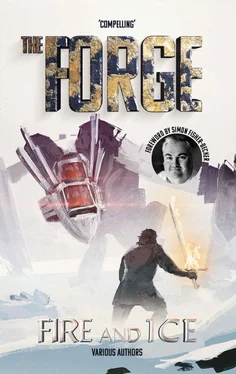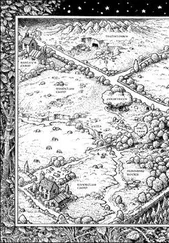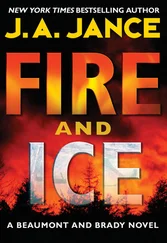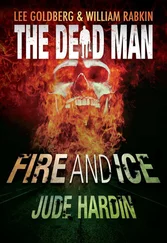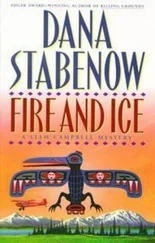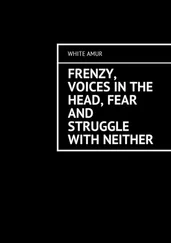To you, dear reader, for choosing this collection.
As well as offering heartfelt thanks to Simon Fisher-Becker for his foreword and to the authors and the invited entries for adding their voices to this anthology, there are a group of folks who rarely get the thanks they deserve when creating a publication like this.
With this in mind we would like to thank; our typesetter Elaine for doing such a wonderful job with the layout, our cover designer Ramon for his beautiful, unique artwork that really captures the spirit of this collection, our tireless editor who spent many hours over many weeks working with each of the authors to finely hone their tales, our author liason Anne-Marie for handling what must have been a hurricane of communications during the editorial process and finally the army of fans who continue to buy, read, review and share news about our charity anthologies, we couldn’t do what we do without each and every one of you.
Thank you.
Dan
CEO
Fantastic Books Publishing
FOREWORD
By Simon Fisher-Becker
For an anthology with its roots in the 16th century, this one certainly spreads its wings far and wide. Both fire and ice have long played roles in great literature; Shakespeare’s King John introduces the concept of fighting fire with fire: ‘Be stirring as the time; be fire with fire; Threaten the threatener…’ During Shakespeare’s lifetime, Sir Thomas North, (Military Officer, Translator and Justice of the Peace) introduced the figurative concept of breaking the ice. His wording is irresistible in the context of a science fiction and fantasy publication, ‘To be the first to break the Ice of the Enterprise.’ Is it Plutarch who said, ‘the mind is not a vessel to be filled but a fire to be kindled,’? If so, it beautifully captures the essence of this anthology.
The remit given to the authors was to get in touch with their dark side and they’ve done just that. Dystopian landscapes unfold from humankind on alien worlds to alien beings wrestling with very human problems (though you could be forgiven for thinking it is an historical account of what is happening on Earth today). There is adventure, drama, narrow escapes, success and failure. Infused with unexpected humour the writers have skilfully forged fire with ice. This is science fiction and fantasy written to a high standard as storytelling ought to be. Given the struggles against adversity that are told on its pages, it is fitting that this book will generate funds to help relieve a condition that causes widespread pain.
Chronic conditions such as fibromyalgia often hit the more vulnerable the hardest. In the 21st century our planet has become too small for factions and inequalities. The Canadian journalist, Bat Masterson, so perceptively said in the 19th century, ‘We all get the same amount of ice. The rich get it in the summer. The poor get it in the winter.’ In the 21st century there is no excuse for such a gaping imbalance. It should light the fire of rage within us all that such disparities still exist. It is so easy to feel a donation from a science fiction and fantasy anthology seems like a drop in the ocean. I say, think again. Remember, every ocean is a collection of single drops.

Simon Fisher-Becker is an actor and author. Amongst his many roles, he has played Tony Fazackerley in Puppy Love, Dorium Maldovar in Doctor Who and the Fat Friar of Hufflepuff House from Harry Potter. Simon’s autobiography, My Dalek has a Puncture, is available from Fantastic Books Publishing.
I stand at the top of a pharmacological cliff. Cold waves pound at its base. Watching from the promontory I cannot tell what makes up the water. I see only hazy blue and feel its power.
‘You want Fire?’ the weasel-faced sergeant asks. ‘For real?’
I nod.
‘You got an op tomorrow. Fire’s gonna make that dicey.’ My money’s good, and she knows she’ll take it. The credit chip lies between us on an ammunition case. My stillness unsettles her, and she palms the chip, leaving two bright red capsules.
‘Your funeral.’ She leaves quickly and I am alone in the tent. The shadows press in on me, full of faces I cannot remember.
We all take ICE. The drug numbs certain parts of our brains and enhances others. On ICE, I’m faster on my feet, on the trigger and in my head. I can go for hours. My spatial reasoning is top percentile, and unless you’re in my unit, you might as well be a paper target for all the thought I’ll give as I take you down. We got the shot before we flew out here, and every six months we get a booster. I’ve been here four years, I think.
The tent is cold and dark, so I pull a blanket around myself as I look at the pills. This stuff is Fire. It might let me know what grinds away at me every night. I’ve seen soldiers take speck doses of Fire before furlough, especially when they have a booster shot of ICE coming up. This is no microdose though, this is the full burn. We don’t remember our dreams, but I’ve been waking up with tears on my face. Pillow damp and pressure building in me, filling me with something. My mind only shows me smudges. A chalkboard, erased just before I see it.
Soldiers using ICE follow orders more efficiently and accurately; they perform at peak capacity. As it wears off, so do memories of the combat zone. Proper regimens increase operational security and lower instances of PTSD and related traumas.
I remember briefings. Manuals. Orders.
Old conflicts produced broken soldiers. Men and women who came home whole in body but not in mind. PTSD put veterans on the streets and destroyed families. No matter what I have to do out here, when I go home, when it wears off, I’ll be human again.
The pressure is unbearable. I scoop, swallow, wash them down with plastic-tasting water from my canteen. Fire in the hole. My next booster isn’t for two months. I hope I make it.
The sergeant was right. I have an op tomorrow, but there are eight hours’ sleep owed me, and unconscious, that’s a long time. I’m a soldier: I sleep fast, and I sleep hard. My head hits the pillow.
‘Within ICE, memories which are not chemically conditioned will fade. At daily briefings, you are required to take supplements. These ensure crucial data will remain available to you. Extraneous details will fade from your mind. Do not worry, Cadets, memories formed before ICE will be unaffected. You will not forget your name, your mothers, or your high school sweetheart.’
‘Please can I forget my wife?’ some smart-ass chimes.
‘We cannot provide that service, Cadet. However, grateful souls in the disputed territories may be able to help.’
I remembered Jas. The way she looked at me when I told her I had signed up. As if I was some sort of idiot hero. She wanted to punch me and fuck me at once. Jas was finishing medical school while I was out here. She was the smart one.
‘You will do basic training while taking supplements, but you will not be issued ICE until deployment. Make the most of these memories, they’ll be lasting you until you come home.’
On the sofa in our rented cellar we shared wine. Jas didn’t like the idea of novel neural depressants.
‘They’re still a work in progress, Raf. Nobody knows what effects these drugs will have in the long term.’
‘I’ll never forget you, Jas. Or how you make me feel.’ We drank more wine and went to bed.
‘ICE will make you a better, quicker soldier. It will help keep you alive, more capable of keeping your unit alive. Without it, you are a weak link. You do not have to partake, but you are responsible for those around you.’
Читать дальше
